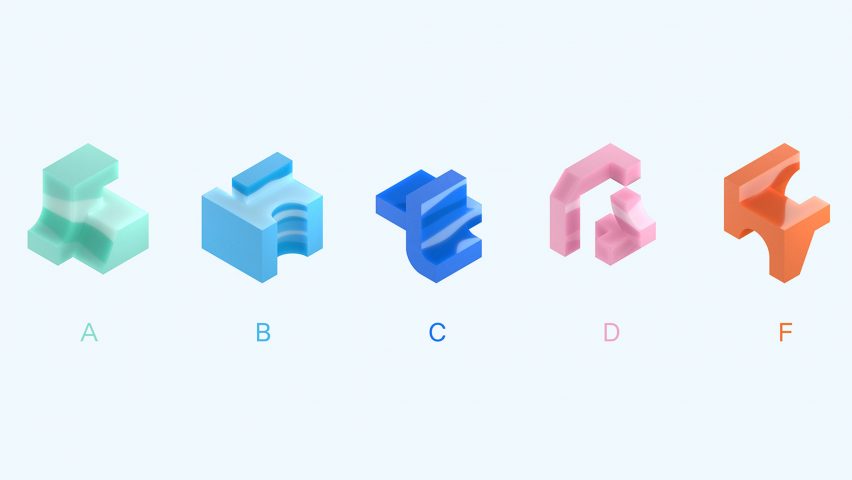
Pentagram creates ever-evolving brand identity for tech company Cytora
Pentagram has given insurance tech company Cytora an animated visual identity that aims to demystify how the business works.
Cytora is the developer of a proprietary "risk engine" that allows insurers to asses and price risk with a high degree of accuracy.
Rather than relying on static data capture, the company's artificial intelligence draws on thousands of variables in real time to create dynamic risk profiles for businesses or properties.
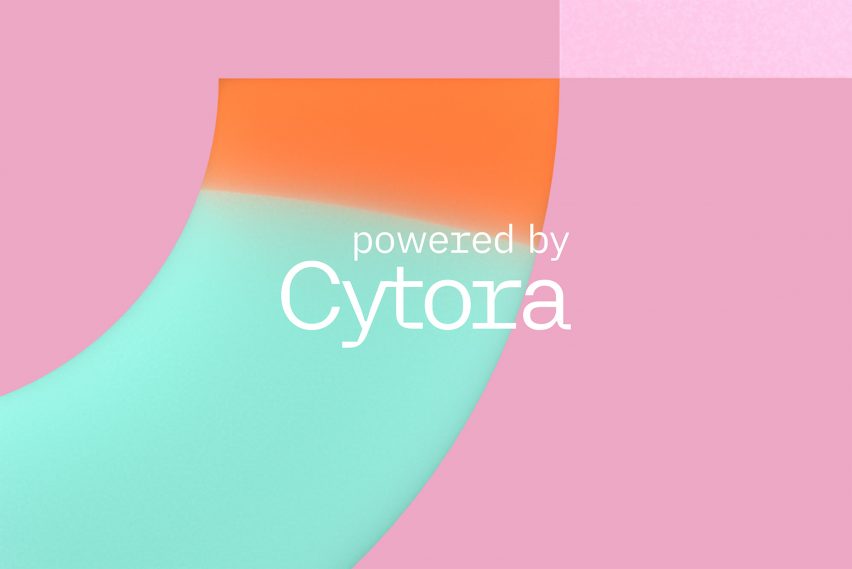
To reflect this ever-changing quality, London-based Pentagram partners Luke Powell and Jody Hudson-Powell used visualisations based on these algorithms to make the company a brand identity.
The visualisations feature blocks layered with pastel and bright colours, each denoting a kind of risk such as flooding or storm damage. The blocks constantly shift form in response to new data points.
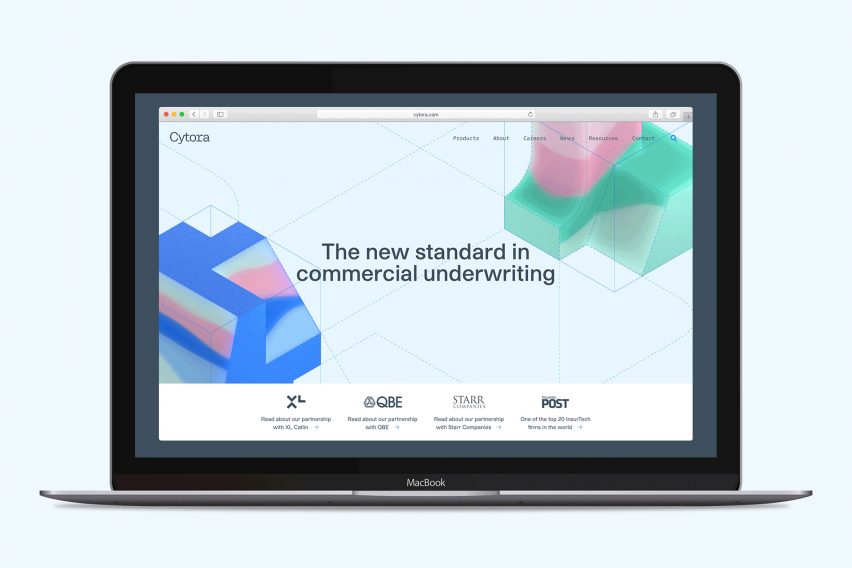
"Every business has a unique risk profile, and by using the Cytora Risk Engine, insurers can accurately assess every risk profile as it evolves throughout time," said Cytora founder and CEO Richard Hartley in a post on the company website.
"Our new brand represents this dynamism through a series of evolving block shapes, each sculpted by the continuous flow of data."
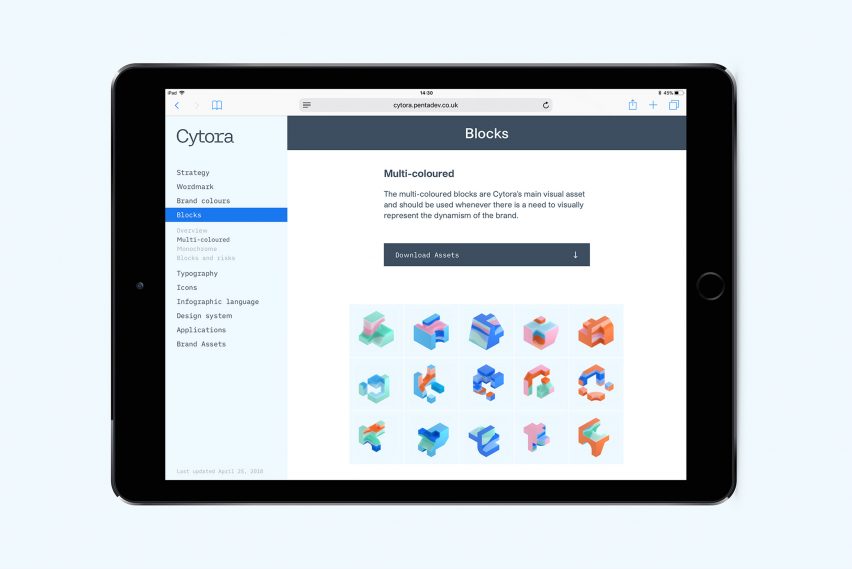
The shifting shapes — made in creation software Houdini and Blender — are used as hero graphics on the web and in digital communications with clients. The same shapes appear in static imagery, with monochrome versions used to denote specific risk scores for clients.
At this stage, the shapes are symbolic of Cytora's algorithm, but the company hopes to one day integrate some of its AI, creating true data visualisations of its risk assessments.
"Working closely with the Cytora leadership team, Pentagram created a brand identity and website that communicates the sophistication of Cytora's offering, while simultaneously demystifying its technology," said Pentagram.
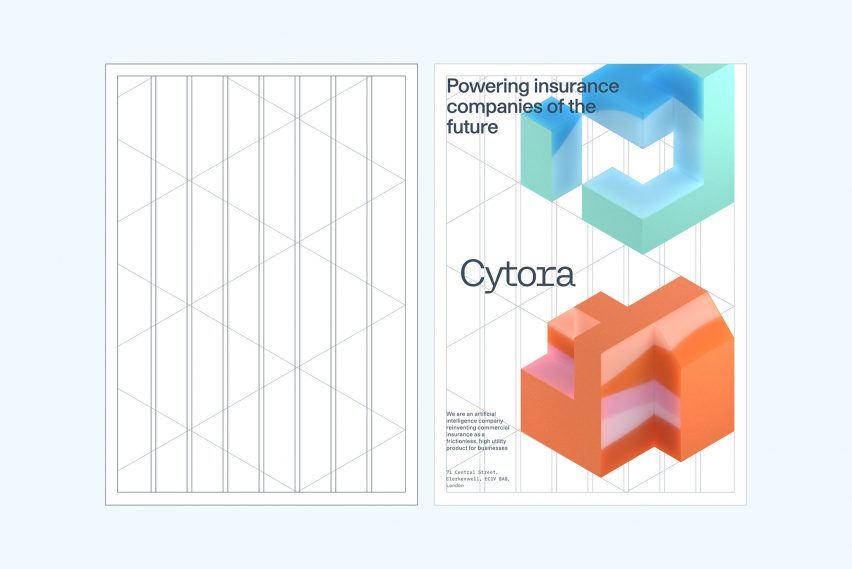
"[We] created a brand language that succinctly translates this innovative process, using a series of dynamic block-shapes to visually represent the fluidity — and sheer-volume — of the data that goes into creating each risk profile."
As well as the blocks, Pentagram's brand identity features a wordmark that combines Cytora's two brand fonts, Studio Pro and iA Writer Duospace, described by Pentagram as representing a "synergy of human and machine intelligence". Pentagram also designed and developed Cytora's new website.
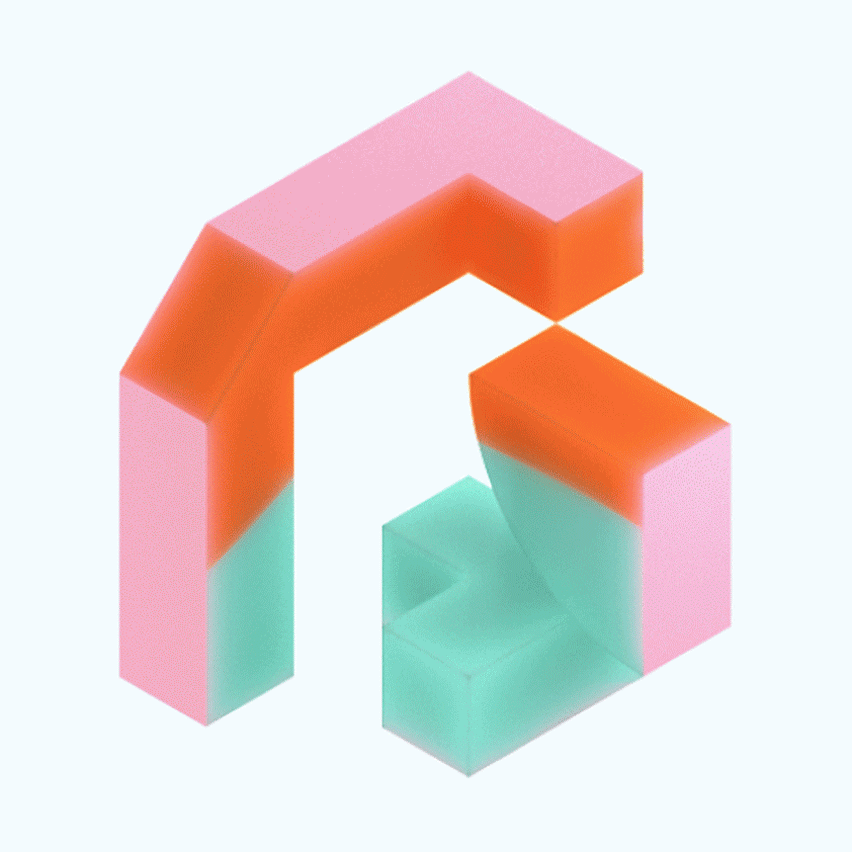
Pentagram worked closely with Cytora's leadership team on the brand identity.
Hudson-Powell told Dezeen that he had observed an increased awareness about design among her clients, which meant more opportunities to push boundaries and evolve projects over time.
"The role and impact of design is better understood to have value across lots of different parts of a business," said Hudson-Powell. "We've always had a very multidisciplinary approach, so for us it allows us to get really involved with clients and have long-lasting relationships, which is something we love."
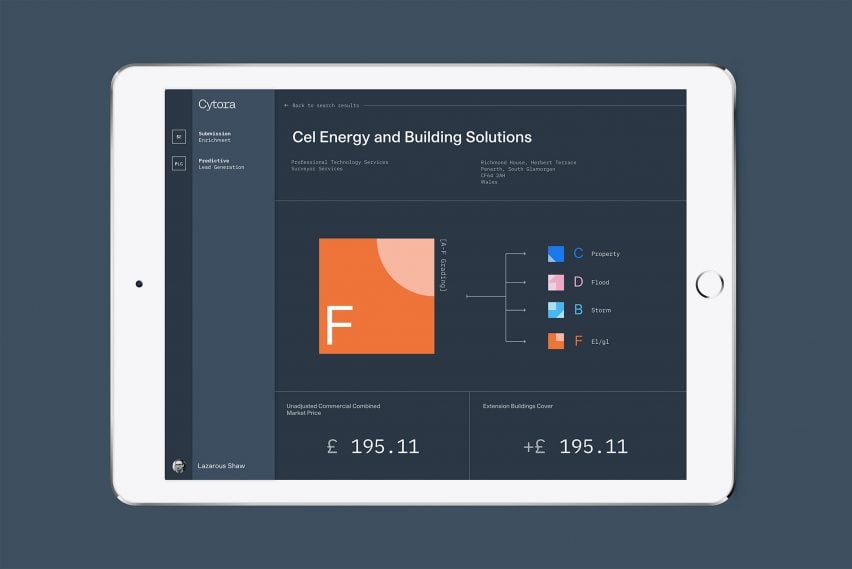
Pentagram is currently run by 20 equal partners who come from disparate areas of design. Powell and Hudson-Powell are based in Pentagram's original office in London's Notting Hill, established in 1972, but the design studio also has outposts in San Francisco, Berlin and Austin.
Recent projects from the studio include new visual identities for animal charity Battersea Dogs & Cats Home and for the rock band The National.